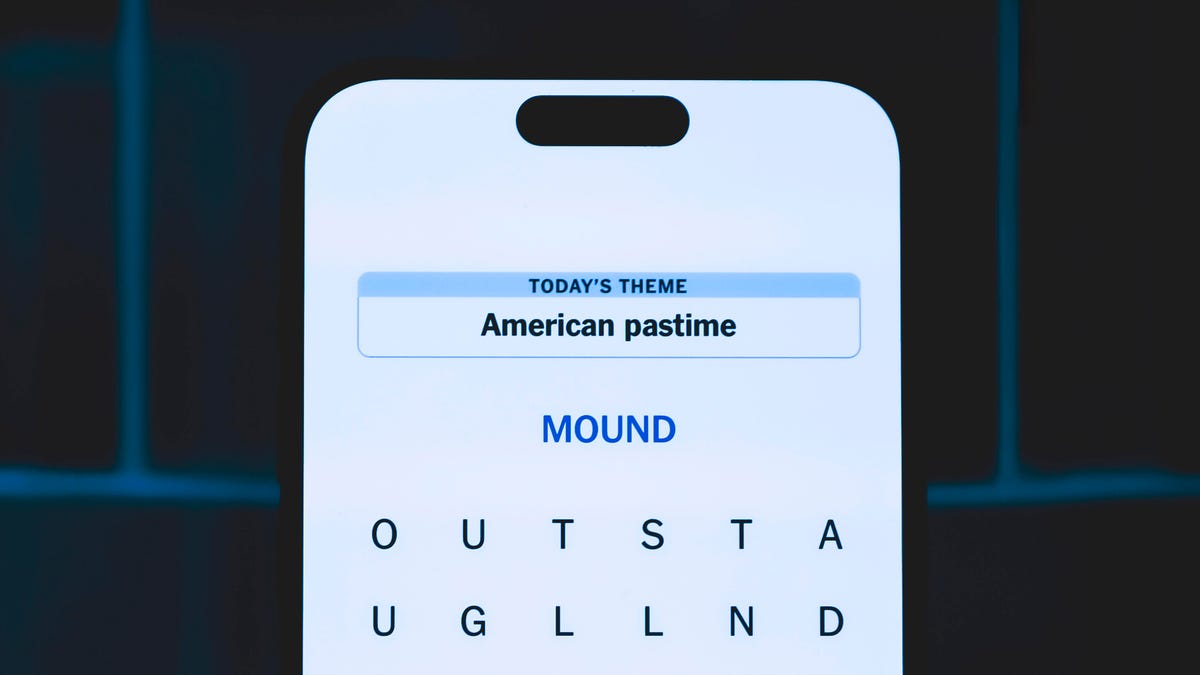Technologies
Facebook resisted changes to dial back viral content, report says
Leaked company documents are providing more insight into how Facebook moderates political content.

Facebook’s executives reportedly resisted efforts to dial back features that help amplify false and inflammatory content ahead of the 2020 US election because they feared doing so could harm the platform’s usage and growth.
The Wall Street Journal, citing leaked internal documents, said Facebook’s employees suggested changes such as killing the reshare button or stop promoting reshared content unless it was from a user’s friend that could slow the spread of viral content for everyone. A proponent of making these types of changes has been Kang-Xing Jin, who heads Facebook’s health initiatives, according to the report. But executives such as John Hegeman, Facebook’s head of ads, raised concerns about stifling viral content.
«If we remove a small percentage of reshares from people’s inventory,» Hegeman wrote in internal communications cited by The Journal. «they decide to come back to Facebook less.»
The report is the latest in a series of leaked internal documents and communications that The Journal says shows Facebook has put its profits over the safety of its users. Frances Haugen, who used to work as a Facebook product manager, publicly identified herself as the whistleblower who gathered leaked documents used by The Journal. The findings from these internal documents has reignited scrutiny from US and UK lawmakers. Haugen, who already appeared before Congress, is scheduled to testify before the UK Parliament on Monday.
Facebook has repeatedly said its internal research and correspondence is being mischaracterized. «Provocative content has always spread easily among people. It’s an issue that cuts across technology, media, politics and all aspects of society, and when it harms people, we strive to take steps to address it on our platform through our products and policies,» a Facebook spokesman said in a statement.
The moderation of political content, though, has been a hot-button issue for the company as it tries to balance safety with concerns about hindering free speech. Conservatives have also accused Facebook of intentionally censoring their content, allegations the company denies.
Instead of making changes that would be less likely to raise alarms about free speech, Facebook’s approach to moderating content from groups that it considers dangerous has been described as a game of whack-a-mole by The Journal.
The New York Times, also citing internal documents, reported Friday that Facebook failed to address misinformation and inflammatory content before and after the 2020 US presidential election even though employees had raised red flags about the issue.
Supporters of Donald Trump, who lost the presidential election to Joe Biden, were posting false claims that the election had been stolen. Facebook has suspended Trump from its platform until at least 2023 because of concerns his comments could incite violence following the deadly US Capitol Hill riot in January.
One Facebook data scientist found that 10 percent of all US views of political content were of posts that alleged the vote was fraudulent, according to The Times. Facebook employees also felt like the company could have done more to crack down on misinformation and conspiracy theories.
A Facebook spokesperson said the company spent more than two years preparing for the 2020 election and more than 40,000 people now work on safety and security. The company adjusted some of its measures before, during and after the election following more information from law enforcement. «It is wrong to claim that these steps were the reason for January 6th — the measures we did need remained in place well into February, and some like not recommending new, civic, or political groups remain in place to this day,» Facebook said.
The Times story is part of a series expected from an international group of news organizations that also received documents Haugen, according to The Information. More stories are expected next week, when Facebook reports earnings and holds its Connect conference on artificial and virtual reality.
Technologies
Today’s NYT Connections Hints, Answers and Help for Dec. 26, #929
Here are some hints and the answers for the NYT Connections puzzle for Dec. 26 #929

Looking for the most recent Connections answers? Click here for today’s Connections hints, as well as our daily answers and hints for The New York Times Mini Crossword, Wordle, Connections: Sports Edition and Strands puzzles.
Today’s NYT Connections puzzle is full of fun pop-culture references. Read on for clues and today’s Connections answers.
The Times has a Connections Bot, like the one for Wordle. Go there after you play to receive a numeric score and to have the program analyze your answers. Players who are registered with the Times Games section can now nerd out by following their progress, including the number of puzzles completed, win rate, number of times they nabbed a perfect score and their win streak.
Read more: Hints, Tips and Strategies to Help You Win at NYT Connections Every Time
Hints for today’s Connections groups
Here are four hints for the groupings in today’s Connections puzzle, ranked from the easiest yellow group to the tough (and sometimes bizarre) purple group.
Yellow group hint: Golden state cliches.
Green group hint: Funny films.
Blue group hint: Rock on.
Purple group hint: Not white.
Answers for today’s Connections groups
Yellow group: California-based character tropes.
Green group: Comedy subgenres.
Blue group: ’70s rock bands.
Purple group: Black ____.
Read more: Wordle Cheat Sheet: Here Are the Most Popular Letters Used in English Words
What are today’s Connections answers?
The yellow words in today’s Connections
The theme is California-based character tropes. The four answers are movie exec, surfer, tech bro and Valley Girl.
The green words in today’s Connections
The theme is comedy subgenres. The four answers are buddy, cringe, screwball and stoner.
The blue words in today’s Connections
The theme is ’70s rock bands. The four answers are America, Chicago, Foreigner and Journey.
The purple words in today’s Connections
The theme is black ____. The four answers are Forest, Friday, Panther and Widow.
Don’t miss any of our unbiased tech content and lab-based reviews. Add CNET as a preferred Google source.
Technologies
Today’s NYT Strands Hints, Answers and Help for Dec. 26 #663
Here are hints and answers for the NYT Strands puzzle for Dec. 26, No. 663.

Looking for the most recent Strands answer? Click here for our daily Strands hints, as well as our daily answers and hints for The New York Times Mini Crossword, Wordle, Connections and Connections: Sports Edition puzzles.
Today’s NYT Strands puzzle is a fun one, but you might struggle at first to see a connection between the words. If you need hints and answers, read on.
I go into depth about the rules for Strands in this story.
If you’re looking for today’s Wordle, Connections and Mini Crossword answers, you can visit CNET’s NYT puzzle hints page.
Read more: NYT Connections Turns 1: These Are the 5 Toughest Puzzles So Far
Hint for today’s Strands puzzle
Today’s Strands theme is: Please hold.
If that doesn’t help you, here’s a clue: Cats love these more than they love expensive toys.
Clue words to unlock in-game hints
Your goal is to find hidden words that fit the puzzle’s theme. If you’re stuck, find any words you can. Every time you find three words of four letters or more, Strands will reveal one of the theme words. These are the words I used to get those hints, but any words of four or more letters that you find will work:
- BOXING, CHEAT, HEAT, SMOCK, MOCK, LATE, TEAM, MEAT, TEAMS, LOOT, TOLE, BALL, BALE, KALE, TALL
Answers for today’s Strands puzzle
These are the answers that tie into the theme. The goal of the puzzle is to find them all, including the spangram, a theme word that reaches from one side of the puzzle to the other. When you have all of them (I originally thought there were always eight but learned that the number can vary), every letter on the board will be used. Here are the nonspangram answers:
- GIFT, SHOE, TOOL, LUNCH, MATCH, PIZZA, BALLOT, TACKLE (All are words that can be placed in front of «box.»)
Today’s Strands spangram
Today’s Strands spangram is BOXINGDAY. To find it, start with the B that’s four letters down on the far-left row, and wind across and then down.
Don’t miss any of our unbiased tech content and lab-based reviews. Add CNET as a preferred Google source.
Technologies
Today’s Wordle Hints, Answer and Help for Dec. 25, #1650
Here are hints and the answer for today’s Wordle for Dec. 25, No. 1,650.

Looking for the most recent Wordle answer? Click here for today’s Wordle hints, as well as our daily answers and hints for The New York Times Mini Crossword, Connections, Connections: Sports Edition and Strands puzzles.
Today’s Wordle puzzle has some tough-to-guess letters. If you need a new starter word, check out our list of which letters show up the most in English words. If you need hints and the answer, read on.
Read more: New Study Reveals Wordle’s Top 10 Toughest Words of 2025
Today’s Wordle hints
Before we show you today’s Wordle answer, we’ll give you some hints. If you don’t want a spoiler, look away now.
Wordle hint No. 1: Repeats
Today’s Wordle answer has no repeated letters.
Wordle hint No. 2: Vowels
Today’s Wordle answer has one vowel.
Wordle hint No. 3: First letter
Today’s Wordle answer begins with P.
Wordle hint No. 4: Last letter
Today’s Wordle answer ends with M.
Wordle hint No. 5: Meaning
Today’s Wordle answer can refer to a geometric figure.
TODAY’S WORDLE ANSWER
Today’s Wordle answer is PRISM.
Yesterday’s Wordle answer
Yesterday’s Wordle answer, Dec. 24, No. 1649, was SPOOL.
Recent Wordle answers
Dec. 20, No. 1645: WHITE
Dec. 21, No. 1646: QUILT
Dec. 22, No. 1647: CONCH
Dec. 23, No. 1648: GLINT
Don’t miss any of our unbiased tech content and lab-based reviews. Add CNET as a preferred Google source.
What’s the best Wordle starting word?
Don’t be afraid to use our tip sheet ranking all the letters in the alphabet by frequency of uses. In short, you want starter words that lean heavy on E, A and R, and don’t contain Z, J and Q.
Some solid starter words to try:
ADIEU
TRAIN
CLOSE
STARE
NOISE
-

 Technologies3 года ago
Technologies3 года agoTech Companies Need to Be Held Accountable for Security, Experts Say
-

 Technologies3 года ago
Technologies3 года agoBest Handheld Game Console in 2023
-

 Technologies3 года ago
Technologies3 года agoTighten Up Your VR Game With the Best Head Straps for Quest 2
-

 Technologies4 года ago
Technologies4 года agoBlack Friday 2021: The best deals on TVs, headphones, kitchenware, and more
-

 Technologies4 года ago
Technologies4 года agoVerum, Wickr and Threema: next generation secured messengers
-

 Technologies4 года ago
Technologies4 года agoGoogle to require vaccinations as Silicon Valley rethinks return-to-office policies
-

 Technologies4 года ago
Technologies4 года agoOlivia Harlan Dekker for Verum Messenger
-

 Technologies4 года ago
Technologies4 года agoiPhone 13 event: How to watch Apple’s big announcement tomorrow
